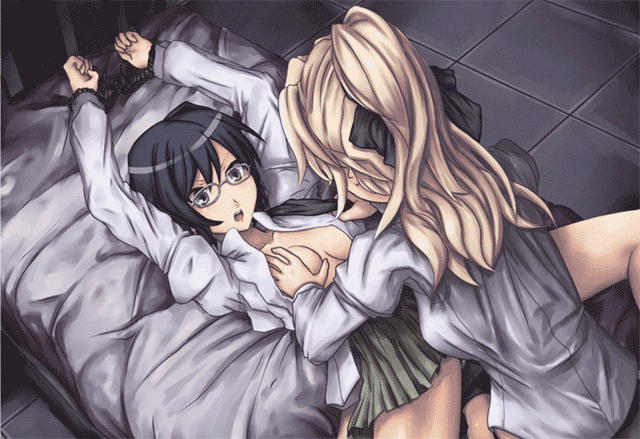
Platform: PC
Publisher: Four Leaf Studios Katawa Shoujo is hilarious. The rest of this review will be me explaining the joke. Sorry. It’s a dating game—well, romantic visual novel; there’s some nuance between “visual novel” and “dating game” that I don’t have space to go into here. It was developed and released by a self-assembled group of fans of the idea of Katawa Shoujo who came together as a reaction to a sketch in a translated piece of Japanese fanwork. The sketch, by an artist who publishes fanwork under the name RAITA, posited a dating game where all the girls were disabled—two amputees, a burn survivor, a blind girl, and a deaf-mute girl. The original idea itself was… funny… because a lot of dating sims are as disrespectful of women as society in general is of the disabled. And because it’s pretty easy to slot common stereotypes regarding certain disabilities into the archetypal clichés that infest the dating-game genre. RAITA published the sketch in 2000. The idea lay dormant until some anonymous fan translated the work and posted it to 4chan in 2007. The name of the game translates to Disability Girls, though that’s inaccurate—the word katawa in this context is an unprintable epithet for the disabled, connoting worthlessness. The 4chan anon community, as attracted to conceptual and intellectual perversity as they are to all perversity, went fucking berserk about the prospect of making the game real, and successive threads flooded the forum with ideas and proposals. Eventually a small group of enthusiasts broke off and started their own development forum, taking the name Four Leaf Studios, and got to work. I didn’t learn about the game’s existence until 2009, when they released a demo. I played it because, like many geeks, I’m attracted to intellectual and conceptual perversity, too. Now, in 2012, five years after the game began development and 12 years after RAITA (not involved with Four Leaf Studios to my knowledge) published the original idea as an offhanded joke in Japan, we have a fully playable thing. Like most visual novels, the gameplay is simple branching-narrative, choose-your-own-adventure stuff. Read and look at pictures until you reach a choice, then that choice determines what happens next. The best way to handle a joke based around intellectual or conceptual perversity is to play it completely straight. Katawa Shoujo is, in every way it can be, as respectful of its subject matter as possible. It’s hilarious because it’s not going for hilarious. It succeeds as a joke because it succeeds as a game absent the joke. Four Leaf Studios consulted with medical experts to ensure its treatment of the various characters’ disabilities is as accurate as possible in a storytelling genre that must melodramatize conflict. The writers are careful to ensure each character’s disability strongly informs but does not define him or her. I say “him or her” because the protagonist is also disabled—the premise of the game is that he had an undiagnosed arrhythmia that gave him a heart attack while a girl was confessing her crush on him, and after being discharged from a six-month hospital stay, he was enrolled in a school founded to serve kids who’d be aided by constant medical oversight. The production values are strong. The music impresses me, and the majority of the art is well polished. The game proper opens with an animated cutscene, and after the first act, the game splits into five branches, one for each potential girl, and each branch has its own animated cutscene, too. The writing is good, although a bit purple during the first act, and the plotting and characterization are well thought out. A warning: The game includes explicit adult content, which you can turn off. (I did because I was curious how the story-based game would hang together as a narrative with certain content automatically skipped. It hangs together well.) My past experience as an internet Japanophile aside, I’ve never gotten into visual novels. I’ve picked up enough about them that I can list off the names of the biggest works, and I have a familiarity with the clichés and stereotypes associated with the genre, but the implied gender politics always bothered me, and I’m annoyed by sexualized moe, which, um—that’s like a whole other article on a whole other subject. I can’t get into it here. I have genuinely enjoyed Katawa Shoujo’s characters and their stories. It makes me want to start playing other visual novels to see if they’re as entertaining. Katawa Shoujo is the best kind of satire—the kind that stands on its own even if you ignore the satiric elements. “This is how you do it, guys. Look, I’m not even being serious and I’m doing it well.” As Blazing Saddles is a great western, The Princess Bride is an excellent swashbuckling fantasy film, Shaun of the Dead is both good romantic comedy and good zombie horror, and Galaxy Quest is the best Star Trek movie, so Katawa Shoujo is an entertaining and touching romance. If all well-executed satire is art by definition, then Katawa Shoujo is proof something resembling a video game can be art.